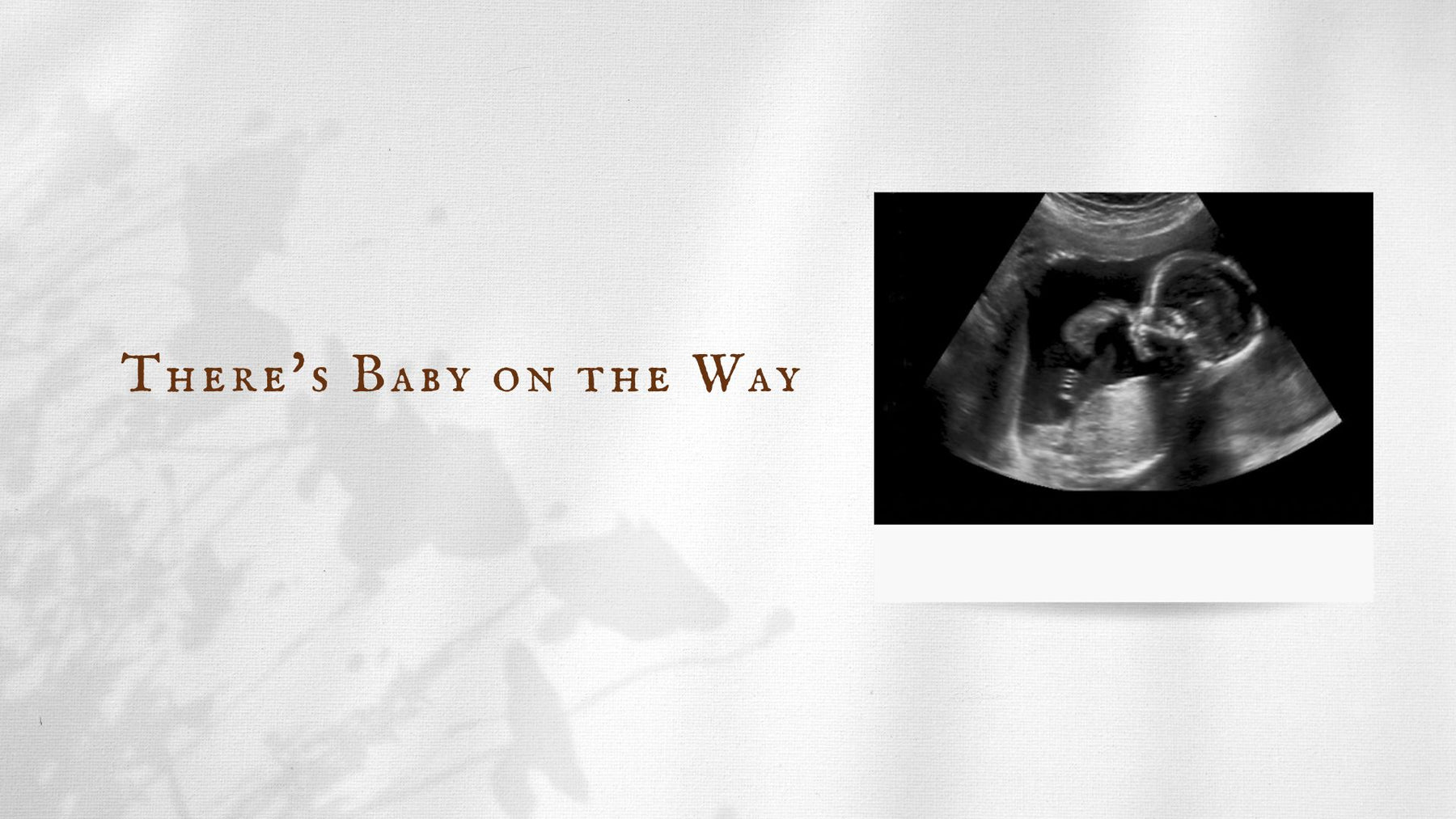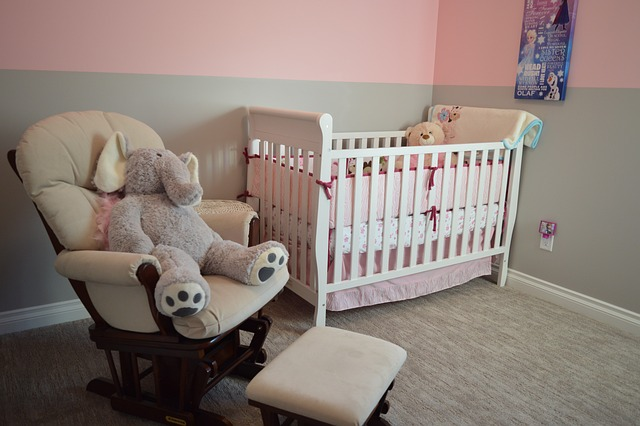
The First Month | First Trimester | Pregnancy Tips for Dads | Miro
Extensive Guide for the First Time Dad: Navigating the First Trimester and Preparing for the Baby's Arrival
Becoming a first time dad is an exhilarating journey that begins with the first trimester and continues well beyond. This period is marked by significant changes, not only for the pregnant woman but also for you as a new dad. Understanding these changes and preparing for the new baby's arrival are crucial to ensuring a healthy pregnancy and becoming a great dad.
Miro Home's Insight
1-Month Embryo is now thriving! Placenta, umbilical cord, amniotic sac, and tail are slowly but surely forming. The 1-Month Embryo is the size of a poppy seed or a grain of salt. So small!
Deep Dive into the First Trimester

The first trimester is a period of rapid fetal development, where major organs and body systems, including the brain and spinal cord, begin to form. Pregnant women experience many changes, such as mood swings and increases in blood volume and weight. As a new dad, recognizing these changes and responding to your partner's needs is part of your journey. Regular prenatal visits and tests such as blood pressure checks, urine tests, and other screening tests are essential during these first weeks.
During the first prenatal visit, which typically occurs in the first trimester, expectant dads can learn a lot. It's the time when you, as a first-time father, should discuss your partner's health history and any of your concerns with healthcare providers. This visit often includes a physical exam and blood tests to ensure everything is on track.
Monitoring Weight and Blood Pressure
Weight and blood pressure are two critical indicators of health during pregnancy, both for the mother and the baby. Regular monitoring can help detect preeclampsia, a condition that can affect both the mother and baby if left unchecked. As a first time dad, you may find it helpful to accompany your partner to her appointments where weight and blood pressure are checked. This not only keeps you informed but also shows your support.
The Importance of Personal Medical History
Discussing personal medical history during the first prenatal visit is crucial. As a new dad, it's essential to understand how your partner's health history can impact the pregnancy. This includes any genetic conditions, previous pregnancies, or other health concerns. Being aware of these factors can help you and your healthcare provider manage the pregnancy more effectively.
Spending Quality Time Together
The first trimester, while exciting, can also be a challenging time for pregnant women, often feeling overwhelmed by the changes in their bodies and the reality of becoming a parent. As a new dad, spending time with your partner can help alleviate some of her stresses. Whether it’s discussing plans for when the baby arrives, decorating the nursery, or simply enjoying each other's company, these moments are precious.
Preparing for When the Baby Arrives
As the due date approaches, it's crucial to have everything ready for when the baby arrives. This means ensuring that all the baby gear is set up, the home is safe and welcoming, and that you, as a new dad, are prepared for the first few weeks of fatherhood. These first few weeks are a period of adjustment for everyone, and being well-prepared can help make this transition smoother.
Understanding and Supporting Pregnant Women
Supporting pregnant women involves more than just physical support; it’s about emotional and mental support as well. Pregnancy can bring about significant mood swings and emotional ups and downs. As a first time dad, learning to recognize and respond to these changes can help you provide the support your partner needs.
The Miracle of Life: From Fertilized Egg to Baby
From the moment the fertilized egg implants itself in the uterus, the journey of growth begins. The first trimester is about more than just the physical development of the baby; it's also about the emotional and psychological preparation of becoming new parents. The embryo, now developing into a fetus, relies entirely on the mother through the umbilical cord, which is a source of nutrients and oxygen.
Staying Active and Healthy
Staying active during pregnancy is beneficial for both mother and baby. As a first time dad, you can encourage and even participate in regular, mild exercise with your partner. This not only keeps her healthy but can also be a bonding experience for you both. Regular exercise and maintaining a healthy diet are critical during the first trimester and throughout pregnancy.
Handling the Overwhelming Feelings
It’s common to feel overwhelmed during the first trimester as new parents. The reality of becoming a dad, the health of your partner, and the upcoming changes can be daunting. Finding ways to manage these feelings, such as talking with other dads, joining support groups, or simply taking time for yourself, can be incredibly beneficial.
Planning for the Due Date
As the due date comes closer, anticipation grows. It's a time filled with excitement but also nerves as the first time dad. Preparing a bag for the hospital, finalizing the birth plan, and making sure all necessary contacts are in place can help you feel more prepared. Remember, the due date is just an estimate, so being flexible and ready anytime around that date is key.
Setting Up a Healthy Home Environment

Preparing your living space for the baby's arrival involves more than just assembling baby gear. It means ensuring that the home environment supports a healthy pregnancy. This can include creating a calm atmosphere that helps handle your partner’s mood swings and ensures good health. Organizing the household chores, maintaining a clean and safe environment, and planning how the new baby will integrate into your space are key responsibilities for expectant fathers. You can also explore getting clean appliances like Miro humidifiers and air purifiers to prepare for your baby.
Embracing Your Role in Pregnancy
The first trimester is a critical time for fetal development, encompassing everything from the formation of the spinal cord to the establishment of the digestive system. For expectant dads, understanding the importance of a healthy diet, which includes a prenatal vitamin, regular exercise, and good habits, is paramount. Being informed about the growth stages, such as when the bones begin to form and how the amniotic sac protects the growing fetus, can demystify many aspects of pregnancy.
New dad tips often emphasize the importance of mental health for both parents. Pregnancy can be overwhelming, akin to a full-time job in its demands on both of you. Spending time with friends and family and connecting with other dads can offer support and practical advice, easing the stress of early days and sleepless nights.
Conclusion: Becoming a Great Dad Starts Early
The journey to becoming a great dad begins the moment you learn about the pregnancy. From the first prenatal visit through the first trimester and beyond, each step you take towards understanding and supporting your partner contributes to a healthy pregnancy. Engaging in prenatal care, monitoring the baby's growth, and preparing your home are all steps that lead to being an awesome dad. Remember, a healthy pregnancy and a new baby bring changes that you can navigate together as new parents, creating a strong foundation for your growing family.
By focusing on these aspects, your transition into fatherhood will be enriched with knowledge and filled with the joy of watching your new baby arrive into a prepared and loving environment. As a new dad, your proactive involvement is crucial—embrace these new dad tips, and enjoy the incredible journey of the first trimester and beyond.
Key Takeaways
-
Understand early pregnancy symptoms like fatigue, nausea, and mood swings your partner may experience.
-
Provide emotional support to your partner by listening, showing empathy, and maintaining open communication.
-
Help manage morning sickness by identifying triggers, providing comfort, and offering emotional reassurance.
-
Start preparing the home for the baby, including babyproofing, setting up the nursery, and organizing baby essentials.
-
Maintain your own well-being through regular exercise, sufficient sleep, engaging in hobbies, and managing stress.
